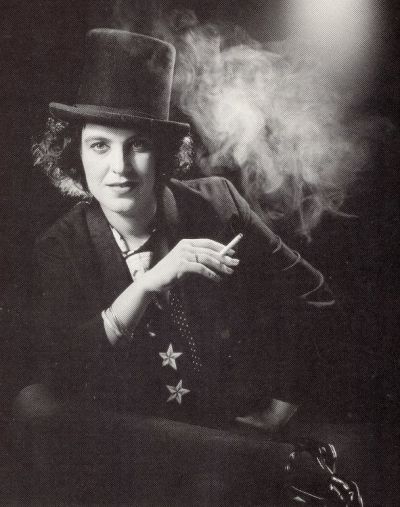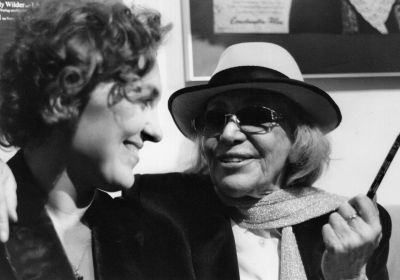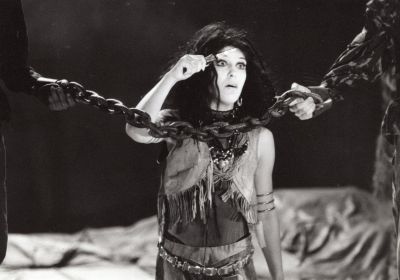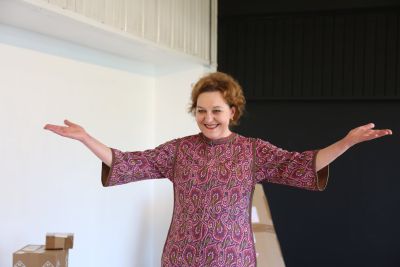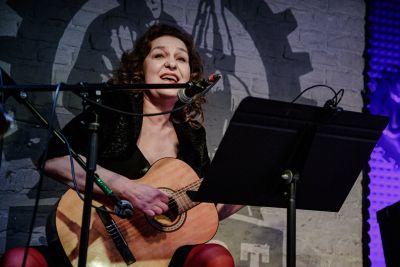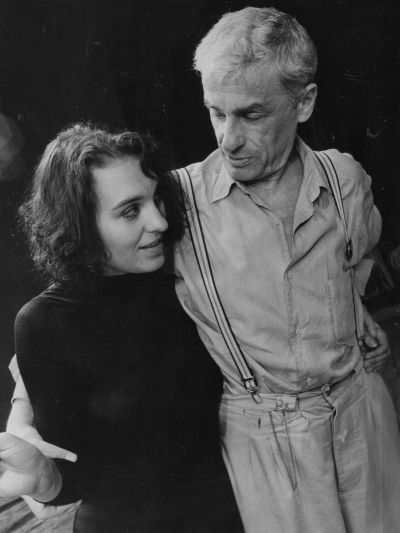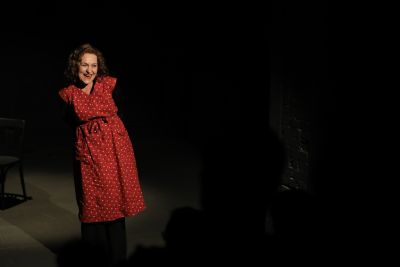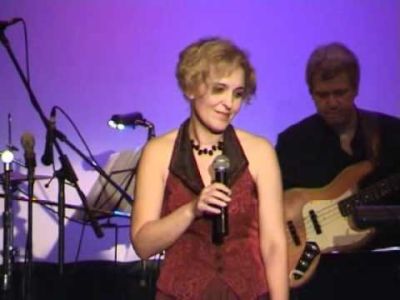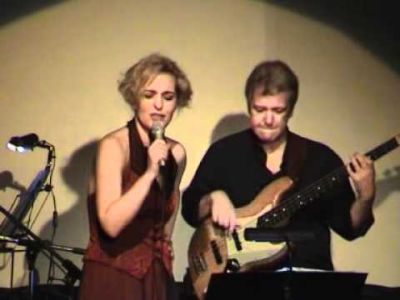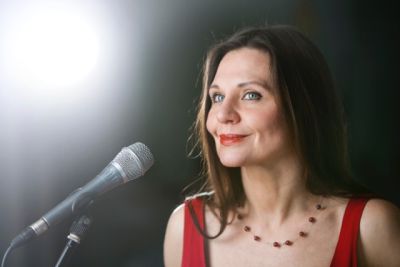Celina Muza – Actor, chanson singer and feminist activist

Celina Muza was born in Puck (near Gdańsk) in 1966. From the 5th year of primary school onwards, she sang and danced in the school’s Kashubian folklore group Zespół Pieśni i Tańca Alga. During her time in secondary school, she composed her first songs based on texts by Polish poets. After her school leaving exams, she studied maritime transport economics at the University of Gdańsk.
While at university, she was discovered at the Łajba student club in Sopot, and was invited by the director Jerzy Gruza (1932–2020) to pursue theatre studies at the Musical Theatre in Gdynia. In the summer of 1990, after completing her training, she took part in the “theatrium – Junges Europäisches Theater in Menden” international youth theatre festival in Menden (in North Rhine-Westphalia), where she met her husband. After returning to Gdynia, she worked as an actor in the city’s local theatre. She returned to the musical stage in 1993, acting in a programme of Marlene Dietrich songs which is still highly popular today. She was later offered work with the famous director Adam Hanuszkewicz (1924–2011) at the Teatr Nowy (“New Theatre”) in Warsaw, where she played the part of Roza Weneda. Celina Muza regards this period as being particularly formative for her artistic output. Following a stint at the Berliner Theater des Westens in 1994, she decided to remain in Germany for the long term.
Adjusting to everyday working life in Germany wasn’t easy. First, she had to learn the language, since without speaking German, finding work as an actor and chanson singer was extremely difficult. “Most importantly, I had the good fortune to receive a private scholarship and was able to complete a German course at the Goethe Institute”, she explains. In addition, thanks to her teachers, Rainer Hauser (Schauspielhaus Bochum) and Rosemarie Hagemann (Musikhochschule Dortmund), she quickly picked up on the German language. For Celina Muza, meeting the famous Hildegard Knef remains one of her most memorable experiences.
“Later, I got lucky once again and had the honour of singing for Hildegard Knef, publishing my songs, meeting wonderful musicians and growing musically. And now I’m going back to the theatre. The latest play is called ‘Zornige Frauen’ (‘Angry Women’) by Maja Staśko, at the ACUD-Theater in Berlin.”
Away from her professional life, Celina Muza has very close connections to the Polish community in Germany. For more than 20 years, she has been a member of the POLin Polnische Frauen in Wirtschaft und Kultur e.V. (“Polish Women in Business and Culture”) society. There, she initiated the “Jugend schreibt Gedichte”( “Young people write poetry”) international writing competition, which was held for the twelfth time in 2024.
“It was really important to me to prove publicly that for children, growing up bilingually is an asset and not a liability. Originally, the project was designed with just kids from Berlin in mind. I had no idea that so many young people would apply to take part in the competition from all over Germany, as well as from Poland and other countries. Our kids are talented, inquisitive and full of fun!”
She is also active in the political arena, and is particularly keen to promote women’s rights: “I like quoting from Professor Bartoszewski: being a decent person is worth the effort!” She also has words of advice for the young generation of artists: “Everything is in a state of flux; that’s why as an artist, it’s always a good idea to have a second source of income.”
Anna Stahl-Czechowska, June 2024
(The text is based on an oral and written interview with Celina Muza.)
Artist’s website: www.muza.de
